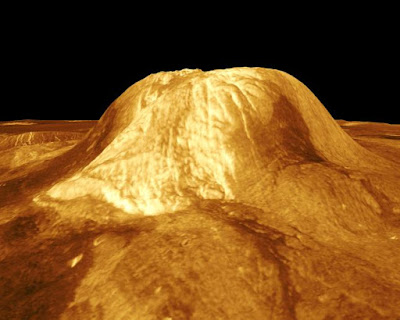Our Solar System is Young
We have been examining reports on various celestial bodies and seeing how scientists are frequently baffled by their signs of youth. If the solar system was billions of years old, there should not be a heap of geological activity. Pluto, for example, is surprisingly active. Those articles are interesting and even fun, but today, we will get a broader view.
Even using dates assigned with secular presuppositions of cosmic evolution, various objects are not as old as they "should" be. We have craters and volcanic activity on Venus, the rings of Saturn are on the young side, our own moon shows signs of volcanism, planets are warmer than expected after such an allegedly long time, short-term comets should not even exist, and more.
One ineffable humbug insists that a possible interstellar asteroid (which is now considered a comet) overturns all of young earth creation science. (he has to put his head in the Martian sand and ignore all the evidence for a young solar system that has been available for a mighty long time.) Also, astronomers do not understand that asteroid. For all anyone knows, it could have been one of "ours", catapulted out by planetary graviational forces and is returning. Maybe time will tell. All that aside, the evidence clearly shows that the solar system was created recently.
 |
| Computer simulation of Gula Mons on Venus Credit: NASA / JPL (usage does not imply endorsement of site contents) |
One ineffable humbug insists that a possible interstellar asteroid (which is now considered a comet) overturns all of young earth creation science. (he has to put his head in the Martian sand and ignore all the evidence for a young solar system that has been available for a mighty long time.) Also, astronomers do not understand that asteroid. For all anyone knows, it could have been one of "ours", catapulted out by planetary graviational forces and is returning. Maybe time will tell. All that aside, the evidence clearly shows that the solar system was created recently.
Secular astronomers insist our universe is 13.8 billion years old and our solar system is 4.6 billion years old. These claims contradict the Bible’s clear teaching of a recent six-day creation. In spite of the secular scientists’ claims, the enormous amount of data collected by unmanned space probes in the last half-century strongly confirms that the planets, moons, and comets in our solar system are quite young. Even when favorable old-universe assumptions are made, the data suggest that the maximum possible ages for these bodies are much, much younger than 4.6 billion years. And since these are maximum, not minimum, possible ages, the age estimates are consistent with a solar system that is just 6,000 years old. A number of evidences confirms this young age.To read the rest, click on "Our Young Solar System". You can learn more on this site and their site. Many of the links after the article are clickable, and most contain creationary resources.